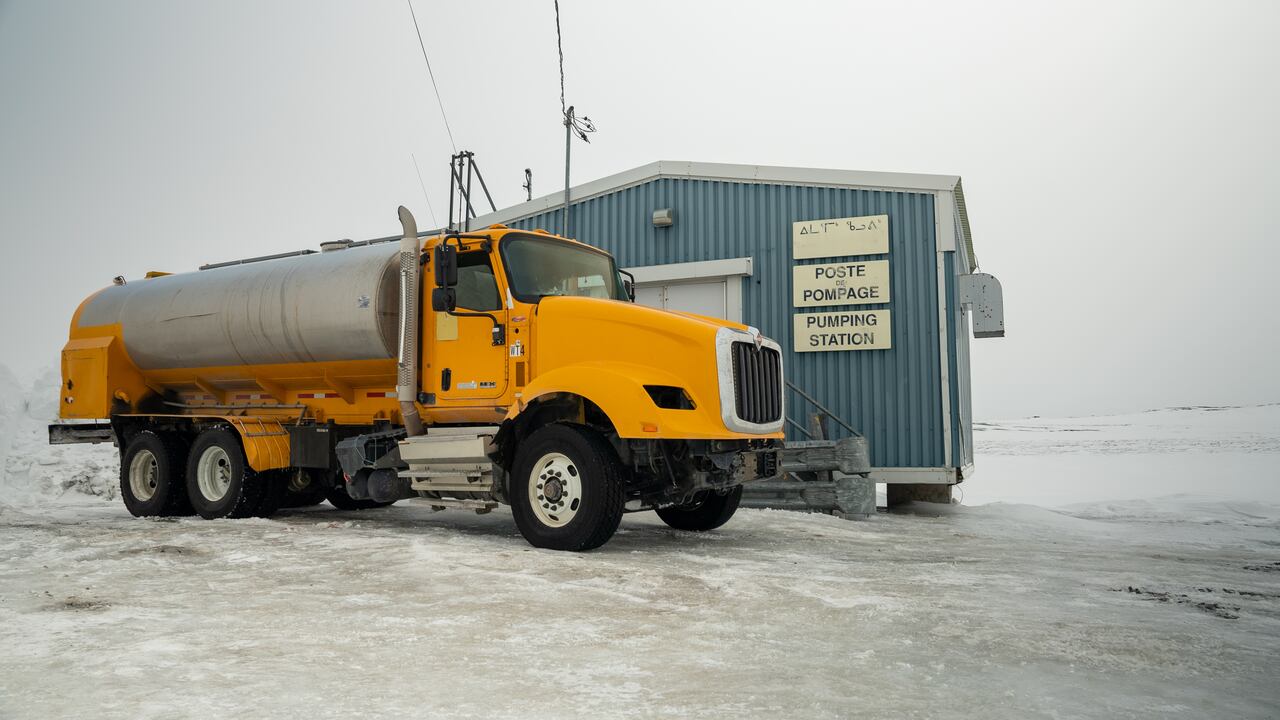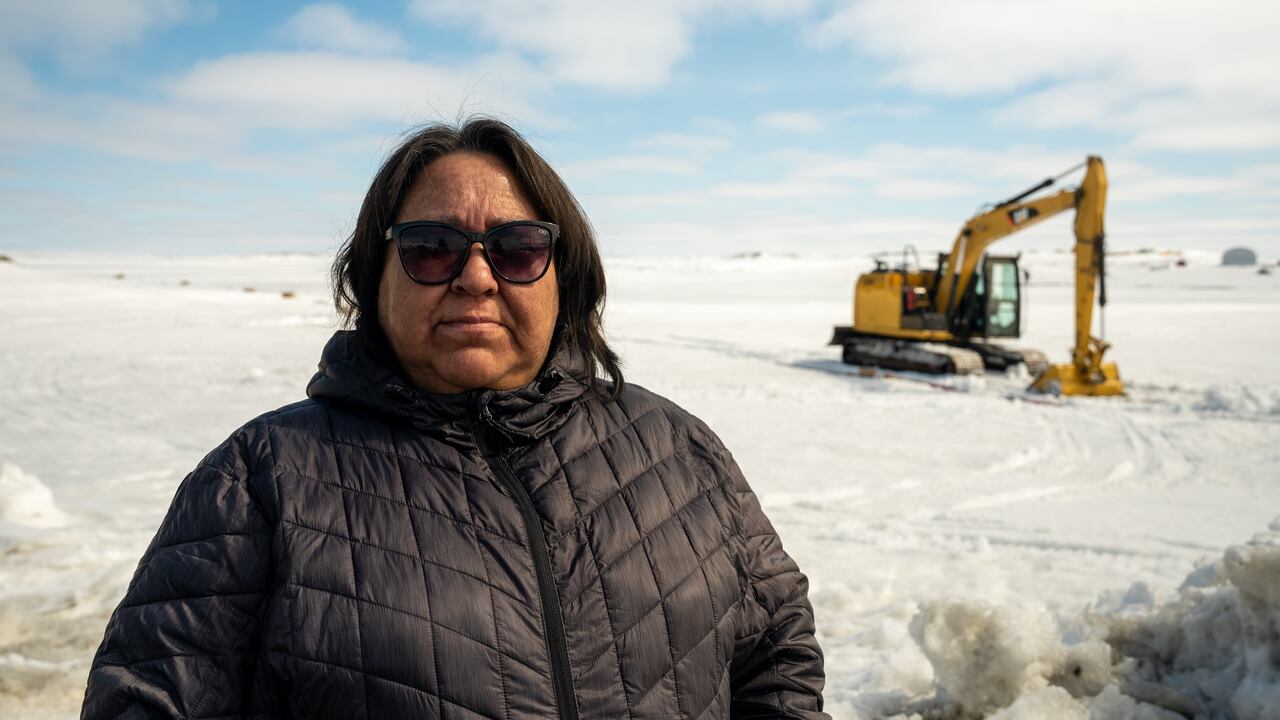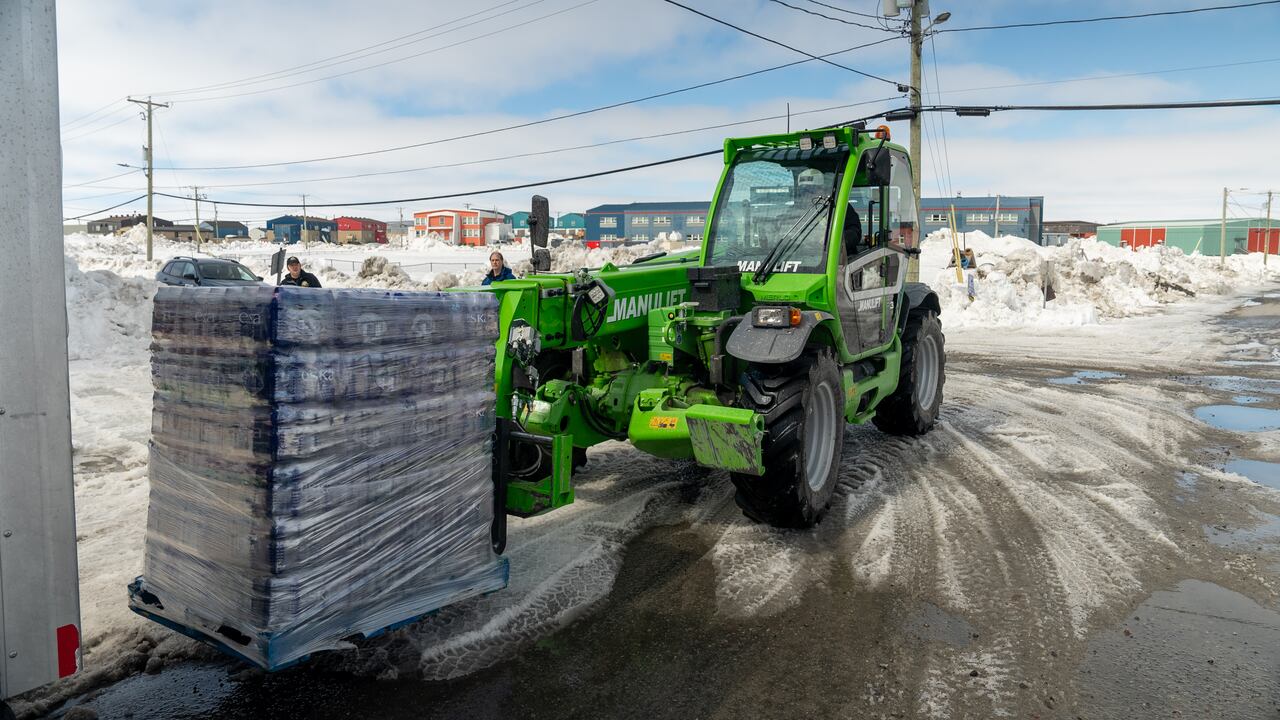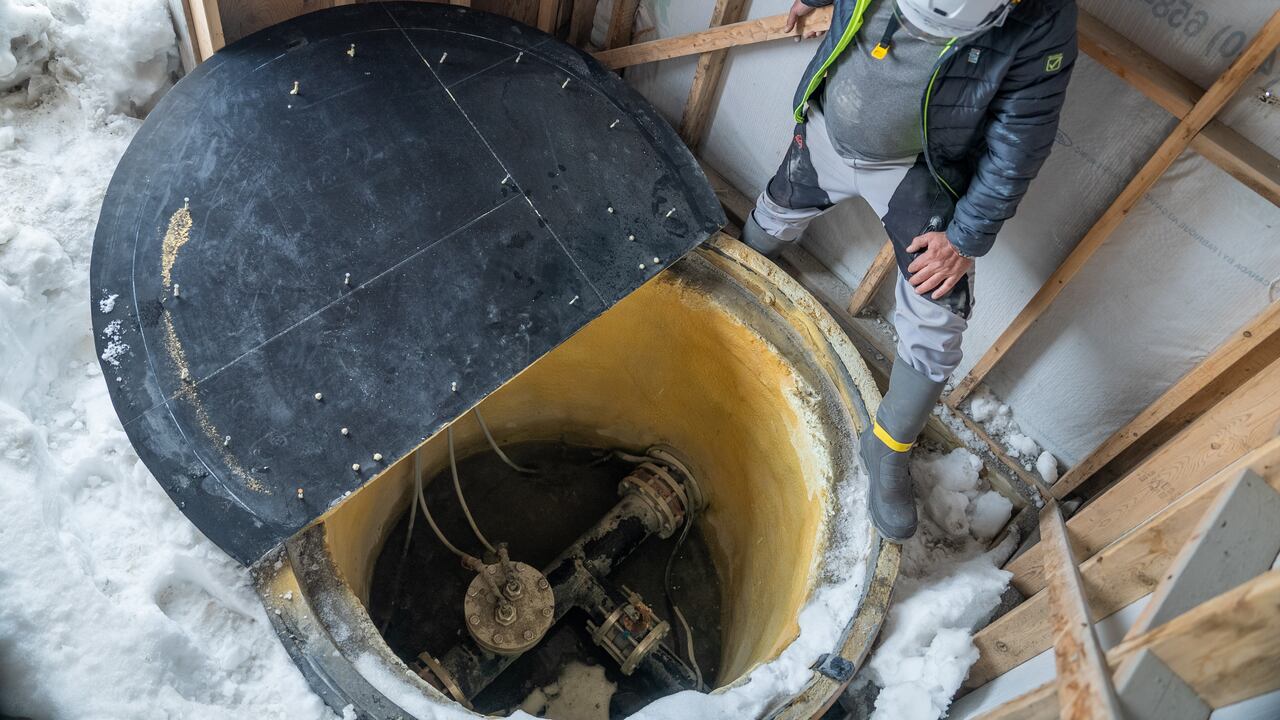Temporary Pipe Installed in Puvirnituq as Water Emergency Grips Quebec Community
A temporary pipeline has begun supplying water in Puvirnituq, Quebec, as the region faces a continuing water scarcity issue.
On Wednesday, workers primarily focused on unloading approximately three kilometers of flexible piping designed to circumvent a portion of the main pipeline that froze in mid-March. This crucial route links the water pumping station with the treatment facility.
The obstruction, combined with dangerous weather conditions, has limited water distribution throughout the community of 2,100 residents.
resulted in a state of emergency
on Saturday.
This scenario has led to school closures, with certain hospitalized patients being transferred.
south for care
.

Hilda Snowball, who chairs the Kativik Regional Government (KRG), stated on Wednesday that they have begun operating the water pumping station. However, there is still work being done to remove snow from the roads leading to both the station and the sewage lagoon.
“The temporary pipeline will fill up the water pumping station where the water trucks get their water from, so it will continue delivering water to each resident,” she said.

Truck drivers from nearby Inukjuak have also pitched in to assist with the deliveries.
Mayor Lucy Qalingo of Puvirnituq reports that prospects are improving for her town, and she remains optimistic that the interim solutions will be completely functional by Sunday.
She mentioned, ‘The roads are melting, the snow is melting, and the sun is shining.’

Approximately 120,000 liters of water have been transported, along with hygiene items. Assistance stations have been established at the elementary school and medical facility. These locations serve as areas where individuals can obtain essentials like bottled water, hygienic supplies, and single-use cutlery.
Twelve local Canadian Rangers have been called upon to assist with distributing supplies.
The rangers had been informally assisting with community support before the federal emergency management minister approved their involvement. However, according to Snowball, who is the chairperson of the KRG, this formal deployment will enable the Canadian Rangers to reduce some of the costs associated with the relief operations.

Snowball stated that deliveries of provisions will keep going until the state of emergency is revoked.
Following that, the priority will shift to repairing the frozen pipe, an issue that cannot be addressed until summertime. The heating cable designed to stop water from freezing during winter has reached the end of its operational lifespan.
“Thawing the region where the pipeline froze proved to be unachievable, hence construction work on the pipeline will need to take place this coming summer when the soil becomes soft again,” Snowball stated.
Identifying the reason behind the frozen pipe will likewise be a key focus for the Quebec government.
In 2023, the KRG entered into a five-year agreement with the Quebec government, securing $163 million for municipal infrastructure development.
Although Snowball acknowledges the funding, she stated that the sum is “insignificant” when divided among the 14 communities of Nunavik.
She cites the case of renovating a daycare center in another community within Nunavik, which required approximately $7 million. She mentioned that water systems in the area are quite antiquated, with three villages planning to undertake pipe repair work.
“The pipes are 15 to 20 years old, which explains the significant damage we’re observing,” she stated.
Additionally, regarding the service trucks… prior to the pandemic, we bought them for roughly $300,000 each. Currently, their price has doubled to around $600,000 per truck. This increase will necessitate significant financial support to bridge the gap.
Ian Lafrenière, Quebec’s minister tasked with handling relations with the First Nations and the Inuit, has reaffirmed his wish to carry out an autopsy once the emergency period concludes, even as he maintains that financial concerns aren’t at play here.
“He mentioned that he had overheard discussions regarding the insufficient funds and the allocation within the previous accord made with the KRG. Apparently, there were remaining resources in that agreement,” he stated.
Is it about our capacity? Or perhaps logistics? Maybe it’s how we collaborate as a team? I need to understand what went wrong here since this situation is simply unacceptable from a human standpoint.